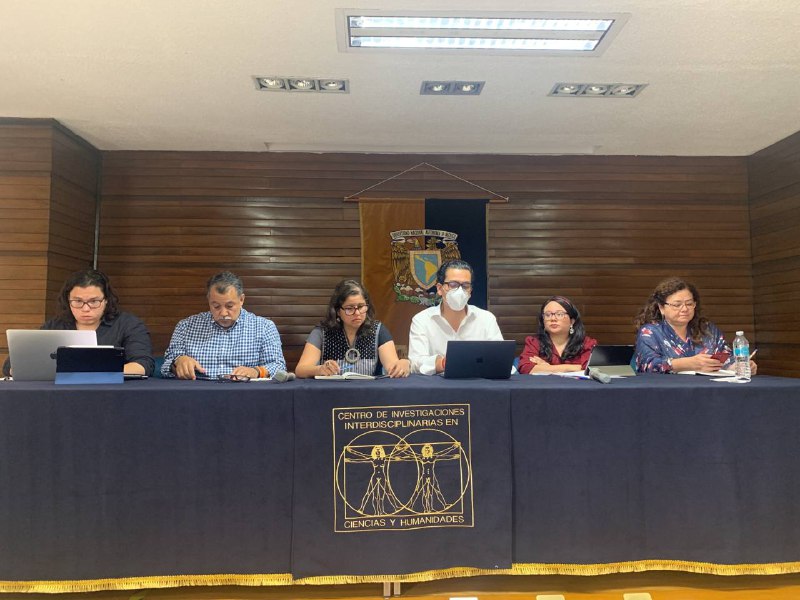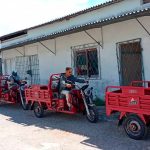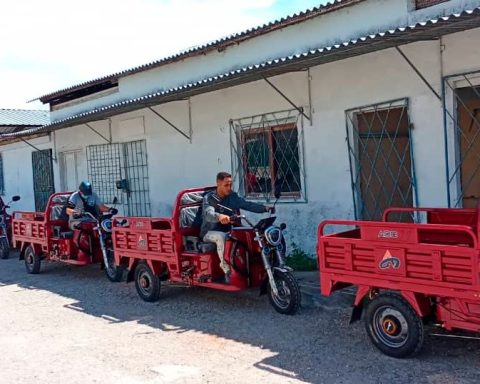The authoritarian drift in Central America is due to the “absence of democratic referents” throughout the region and to the fact that the existing instruments to curb authoritarianism, such as the sanctions implemented by the United States (USA) and the European Union (EU), have had “quite limited effects”, estimates a group of academics and human rights defenders who discussed on Tuesday the challenges of democracy in the region.
The director of the Washington Office for Latin American Affairs in Mexico, Carolina Jiménez Sandoval, pointed out that unfortunately the referents in Latin America are authoritarian regimes, to the point that “in Central America nobody wants to be Nicaragua and in South America nobody wants to be Venezuela.” In the region “there are no democratic leaderships that are strong enough to stop this authoritarian drift,” she added.
Jiménez Sandoval —who participated along with other academics in the panel State of Democracy in Central America 200 years after Independence— He also warned that the sanctions that the US and the EU have implemented against authoritarian regimes, such as that of Daniel Ortega and Rosario Murillo in Nicaragua, “clearly have had quite limited effects” and the entrenchment of authoritarianism in the region shows that “the The instruments we have to try to curb authoritarianism have their limits.”
For the president of the Democracy, Transparency and Justice Foundation of El Salvador, José Marinero, “the authoritarianism has never gone away of the region, it has always been there”. What happens, she noted, “is that we’ve had little democratic episodes, little democratic experiments.”
However, in recent years there has been “a wave of authoritarianism throughout the region,” Marinero said. This wave of authoritarianism in El Salvador and other neighboring countries began with the destruction of democratic institutions, beginning with the justice system; followed by the marginalization of political parties, then the creation of a narrative of hate and the creation of a permanent enemy; then came the militarization of public management, contempt for human rights, intolerance of criticism, and the closure of civic space.
The goal is to silence civil society
The director for Central America and Mexico of the Center for Justice and International Law (Cejil) and former attorney general of Guatemala, Claudia Paz y Paz, finds the authoritarian drift of her country “a shame.” Since the International Commission against Impunity in Guatemala (CICIG) unveiled the system of political corruption in the country, for which the Government chose to close itself to scrutiny and expel the CICIG. “From that moment we see the deterioration,” he commented.
“In Guatemala, as is the case in Nicaragua, the tool to persecute civil society, human rights defenders, leaders, journalists, is criminalization. We have seen how criminal cases have been opened unfairly. Criminalization is just that, the arbitrary use of Criminal Law to punish opponents. Criticism is not tolerated, opposition is not tolerated, and anyone who denounces is prosecuted to silence him, either because he is deprived of his liberty or because he is forced to leave the country, “said Paz y Paz.
For the director of the Urnas Abiertas citizen observatory, Olga Valle, authoritarianism in Nicaragua does not occur spontaneously but is the continuation of a series of pacts between the political and economic elites that have been taking place historically in the country.
“In Nicaragua, what happened is that early action was not taken for an emerging authoritarian regime,” Valle warned. “There was early evidence and hopefully in no other country will this go unnoticed: fraud, the elimination of political pluralism and electoral competition; the monopolization of the media, the annulment of social actors and political subjects, the progressive and systematic suppression of fundamental freedoms and the absolute concentration of power”, he detailed.
Meanwhile, the former director of the Central American Chair of the University of Costa Rica, Alberto Cortés Ramos, pointed out that in Costa Rica, with its peculiarities, it is also experiencing “a process of profound transformation” that generates great concern, since, he valued , “it could generate a new form of State with much less presence and relevance of the public sector and could also reverse advances that had been achieved in the area of human rights.”

















